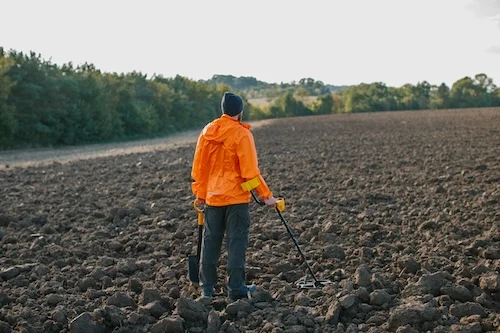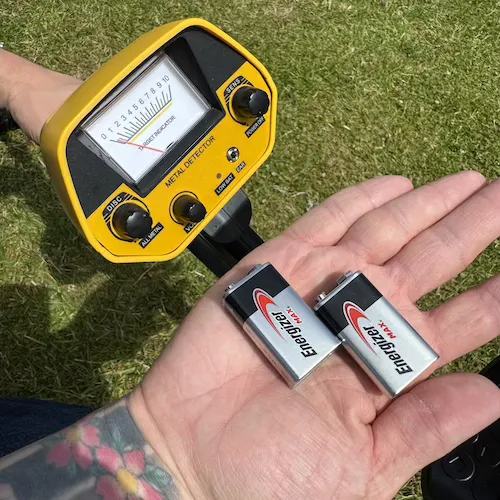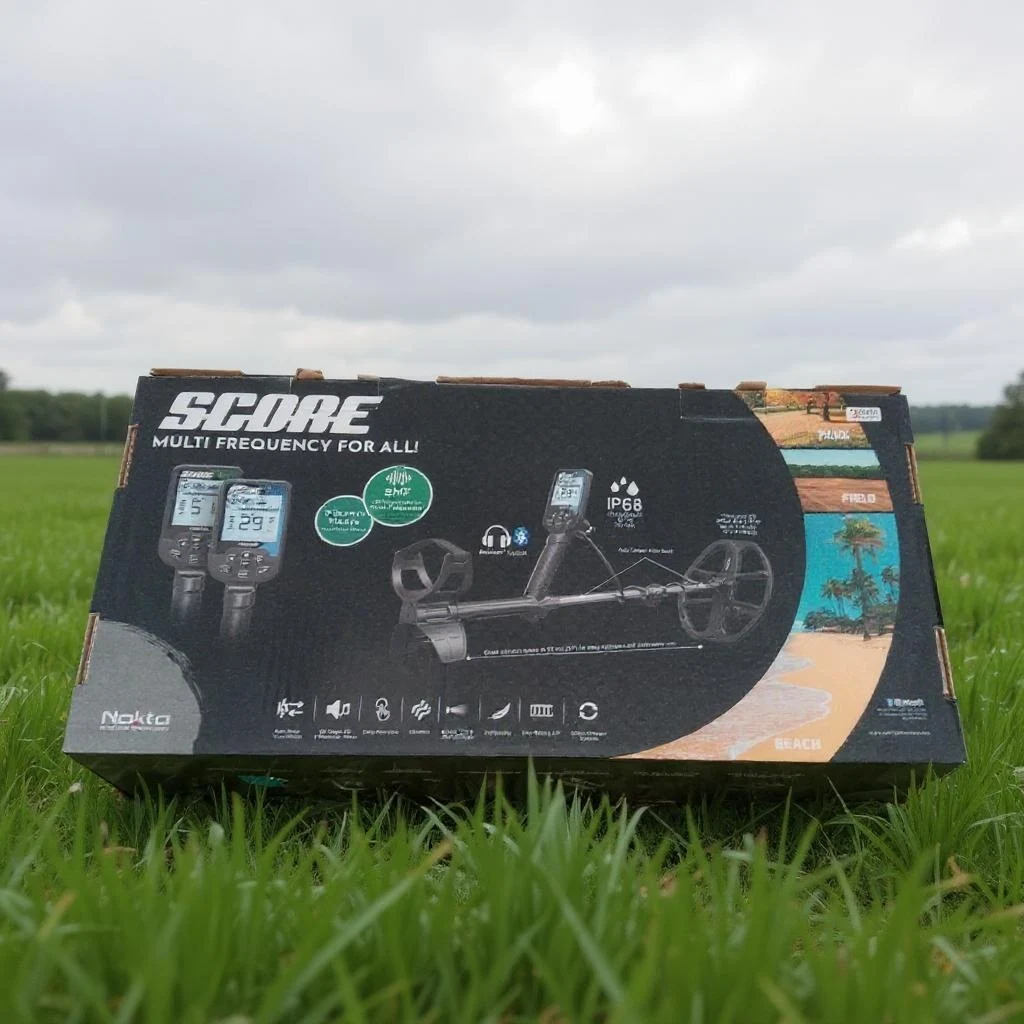What is Night Hawking and Why Is It Illegal?

Written by Piotr Lesniewski
Detectorist • Scotland
As an Amazon Associate we earn commission from qualifying purchases. Read our full Affiliate Disclosure.
You've probably heard whispers about "night hawking" in metal detecting communities, but you might not realize how this illegal practice threatens the entire hobby's reputation.
When unauthorized detectorists target protected sites and private property under cover of darkness, they're not just breaking trespassing laws—they're destroying irreplaceable archaeological evidence and putting legitimate hobbyists at risk.
The consequences extend far beyond criminal charges, and understanding these risks could determine whether your detecting passion becomes a costly mistake.
Key Takeaways
- Night hawking is the illegal practice of using metal detectors on protected or private land without permission.
- Practitioners typically operate under cover of darkness to avoid detection by authorities and landowners.
- The activity violates multiple laws including trespassing, theft, and heritage protection regulations with severe penalties.
- Night hawking destroys archaeological context and steals valuable historical artifacts from cultural heritage sites.
- This illegal practice harms legitimate metal detecting by creating suspicion and reducing landowner cooperation.

Understanding the Illegal Practice of Metal Detecting Without Permission
While metal detecting can be a legitimate hobby when done with proper permissions, night hawking represents its dark counterpart—the unauthorized and illegal practice of using metal detectors on protected or private land without consent.
You'll typically find night hawkers operating under cover of darkness to avoid detection by landowners or authorities. They target archaeological sites, scheduled monuments, and private property where valuable artifacts might exist.
This practice violates multiple laws including trespassing, theft, and heritage protection regulations.
You're essentially stealing history when you engage in night hawking, as artifacts lose their archaeological context and scientific value when removed improperly.
The practice damages both the physical landscape and our collective cultural heritage permanently.

Legal Consequences and Penalties for Unauthorized Detecting
Because night hawking violates numerous laws simultaneously, you'll face severe legal repercussions that can devastate your finances and freedom. Trespassing charges alone can result in fines up to £5,000 and potential jail time.
If you're caught metal detecting and removing archaeological artifacts, you'll face federal prosecution under heritage protection laws, with penalties reaching £100,000 and five years imprisonment.
Theft of treasure trove items carries additional criminal charges, while damaging protected sites triggers environmental violation fines. You'll also face civil lawsuits from landowners seeking compensation for property damage and lost archaeological value.
Criminal convictions create permanent records affecting employment opportunities, professional licenses, and travel privileges. Courts don't treat night hawking as harmless hobby activity—they view it as serious criminal behavior warranting substantial punishment.

Common Methods and Tactics Used by Illegal Metal Detectorists
Night hawkers employ sophisticated planning and deception to avoid detection while conducting illegal metal detecting activities.
You'll find they operate under cover of darkness, using headlamps with red filters to minimize visibility from a distance. They scout locations during daylight hours, identifying access points and escape routes while appearing as casual visitors or dog walkers.
These illegal detectorists often work in small groups, posting lookouts to watch for authorities or landowners.
They'll disable or avoid security cameras and use quiet, high-end equipment to reduce noise.
You'll notice they frequently target recently plowed fields, construction sites, and areas near known archaeological sites where finds are more likely. They communicate through encrypted messaging apps and share intelligence about productive locations within their networks.

Protecting Yourself as a Legitimate Metal Detectorist
Understanding these illegal tactics helps you recognize the stark difference between night hawking and legitimate metal detecting practices. You must always secure proper permissions before detecting on any property.
Carry written landowner consent and relevant permits with you during every outing. Document your finds properly, including GPS coordinates and depth measurements.
Report significant archaeological discoveries to local authorities immediately.
You should only detect during permitted hours and avoid sensitive historical sites entirely. Join reputable metal detecting clubs to stay informed about legal requirements and best practices.
Always follow the metal detecting code of conduct, which emphasizes responsible detecting, thorough research, and environmental stewardship. These practices protect you legally and preserve archaeological heritage for future generations.

Real-World Cases and Their Impact on the Hobby
When examining high-profile night hawking cases, you'll discover how these crimes devastate both archaeological heritage and the metal detecting community's reputation.
The 2020 Herefordshire case perfectly illustrates this damage. Two men received five-year prison sentences for illegally detecting a Viking hoard worth £3 million. They'd operated under cover of darkness, failed to report their discovery to authorities, and attempted secret sales.
This case demonstrates night hawking's serious legal consequences while highlighting the irreparable harm to historical knowledge.
When artifacts aren't properly excavated and recorded, their archaeological context vanishes forever.
You'll find that such high-profile prosecutions cast suspicion on all metal detectorists, making landowners hesitant to grant permission and authorities more scrutinizing of the hobby's legitimate practitioners.
Conclusion
You'll protect metal detecting's future by understanding night hawking's serious consequences. Don't risk your reputation, freedom, or the hobby's legitimacy by detecting without permission.
Always secure proper consent, follow local laws, and report suspicious activity you encounter.
Your responsible detecting practices help preserve archaeological heritage and maintain positive relationships with landowners and authorities.
Remember that every unauthorized dig damages not just sites, but the entire metal detecting community's credibility and access rights.
Author Profile

Piotr Lesniewski
"Digging up the past, one signal at a time."
Polish-born, Scotland-based, and obsessed with the beep. My passion began decades ago, exploring fields with my Dziadek (grandfather). Now, with over 10 years of digging under my belt, I'm here to share everything I've learned—unfiltered and unbiased—to help you unearth your own piece of history. No sales pitches, just real field experience.